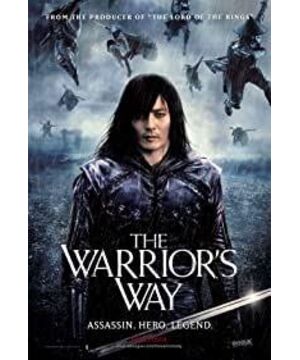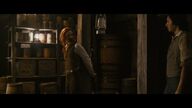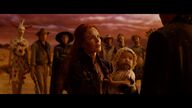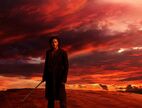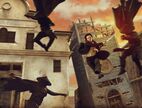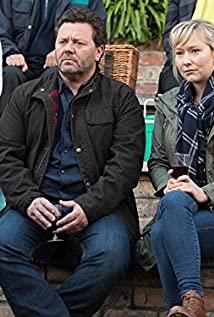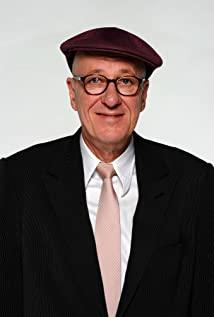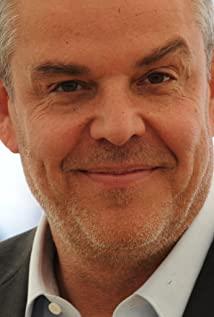The plot of this film is by no means novel. The protagonist who washes away the blood stains and changes his face to be a new person can be found everywhere in martial arts films. As for Yang in this film, why did he choose the laundry room in his later career, and he planted flowers and grass in a somewhat unrealistic desert, and walked like a father with a child on his back... The meaning of which is also understandable. Not difficult. These are all new attempts by director Lee Seung-moo to cater to American tastes. [Desert Warrior] has gone through several years from planning to release. This hard-won cooperation between Korea and the United States is not only in terms of technology, but also the integration of the plot is also very thorough. It integrates the oriental warriors and the American West era. Although it lags behind the grafting of [good guys, bad guys, weird guys], it is still a partial style in Korea and the United States - it has a bit of strange charm, and at the same time reveals The danger of "anytime benevolence". In theory, the quality of the film is determined by the quality of the film's mix and match, but because of the difference between the audiences in the two places, there is also a subtle variable index in the viewing experience.
From the point of view of co-production, the different perspectives and fresh materials are really eye-catching. But as far as the Orientals' understanding of samurai is concerned, the samurai plot presented in this film is too contrived. [Desert Warrior] is different from the previous [Ninja Assassin], the plot is a little bit more weighted, but it's just a little bit. And Zhang Dongjian, who is widely expected, is not very sharp in his acting skills in the film, and the emotional changes of the characters are flat-most of the reasons should be attributed to language differences. The samurai played by Jang Dong Gun in the film uses all English lines (please recall the laughter that he caused when he opened his mouth in [Wuji]), which not only brings a little strangeness to the oriental audience, but also makes Jang Dong Gun's acting skills in this book. Great discount in the film. His partner, Kate Boworth, is the opposite, with quirky expressions and exaggerated movements that have a Disney feel.
Maybe we shouldn't worry about the characters and plots, because the focus of the whole film is on the fancy swordsmanship, bloody scenes, and wonderful special effects from beginning to end. It must be admitted that the photography of the film is quite similar (two words are omitted here), and the lens selection and moving line design make people have to be amazed at its perfection after using computer special effects. The soundtrack of the film is also very thoughtful. In addition to the sword in the dark, the intense chase and other scenes have been sublimated with the help of music, the implantation of a highly ethnic Korean classical music has also become a part of [Desert Warrior]. spotlight. It's just that the director's good intentions to promote Korean movies have won the favor of many Western audiences.
In recent years, Korean movies related to Hollywood, or Hollywood movies starring Korean actors, are limited to samurai themes. Similar to Rain's [Ninja Assassin], Lee Byung-hun's [Special Forces: The Rise of the Cobra], and Jun Ji-hyun's [The Last Vampire], all of them are inseparable from the samurai, and these movies are all thunder and rain little. Although it is inevitable to guess that [Desert Warrior] will not escape the same ending in the end, whether it will become a victim or a trophy in the cultural collision will depend on time.
View more about The Warrior's Way reviews


